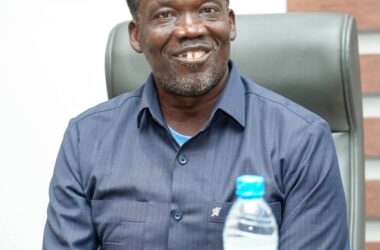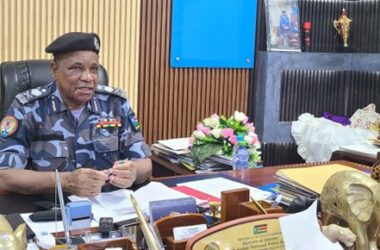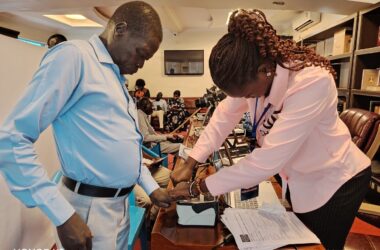By Kidega Livingstone &Bida Elly
South Sudan AIDS Commission (SSAC) and Transitional National Legislative Assembly (TNLA) have called on the Unity government to increase funding for the health sector in 2024-25 fiscal year.
The two institutions acknowledged that the health sector heavily relies on development partners for its smooth functioning, as government funding has dropped significantly in recent years.
According to the South Sudan Parliament, government funding for the health sector was between 7% and 6.5% of the national budget in previous years but has now plummeted to just 2%.
Speaking during the declaration of a joint commitment to fight HIV, TB, and malaria, and strengthen the country’s health systems, Dr. Benjamin Malek Alier, Chairperson of the Health and Population Committee in the TNLA, said the collaboration between the Ministry of Health and development partners has improved the health sector, but more needs to be done.
“In the South Sudan Parliament, the issue of the national budget is a problem in the health sector. The budget was standing at 7% but later dropped to 2%. The government has to increase the budget for the health sector because our people are suffering,” he said.
Dr. Malek added that most health services have been provided by development partners, but the government will soon need to take full responsibility for the health sector.
Dr. Esterina Novello, Chairperson of the South Sudan HIV and AIDS Commission, emphasized that health is a fundamental need for the people of South Sudan, and the government and development partners must commit to supporting the sector.
“The budget for the health sector has been a war, and I have not seen it reach 50% of the national budget; without healthy people, a country will not develop,” she said.
The Minister of Finance and Planning on Tuesday told parliament that the national budget for the 2024-25 fiscal year has been drafted and is awaiting approval by the cabinet and the Transitional National legislative Assembly (TNLA).
However, the legislators have expressed concerns about the low allocation to the health sector in the new budget.
Meanwhile, First Vice President of South Sudan, Dr. Riek Machar Teny, vowed to engage the Council of Ministers to increase the allocation to the Ministry of Health, stating that the country needs serious attention in this sector.
Machar made the remarks during a meeting with a delegation from the Global Fund and GAVI Alliance, responsible for supporting health programs across nations.
Last year, the National Minister of Health, Yolanda Awel, attributed the shortage of medical facilities across South Sudan to the limited yearly allocation to the Ministry of Health in the fiscal budget, stating that improving the allocation would remedy the catastrophe.
Earlier this year, the Director-General of the Juba Teaching Hospital, Maker Gai, had called for immediate government intervention as the hospital faced irregular supplies of medicine, forcing poor patients to purchase medicines from private clinics.
According to an extracted statement from the Office of the Vice President, the two visiting bodies discussed the need to improve the healthcare sector in South Sudan, particularly in the affected states.
The Vice President assured the delegation of his commitment to work with the Cabinet to ensure that the health budget is increased to address the rampant medical challenges facing the people of South Sudan.
The 2022-23 fiscal year focused on consolidating peace, maintaining stability, and stabilizing the economy, as outlined in the 2018 revitalized peace agreement.



